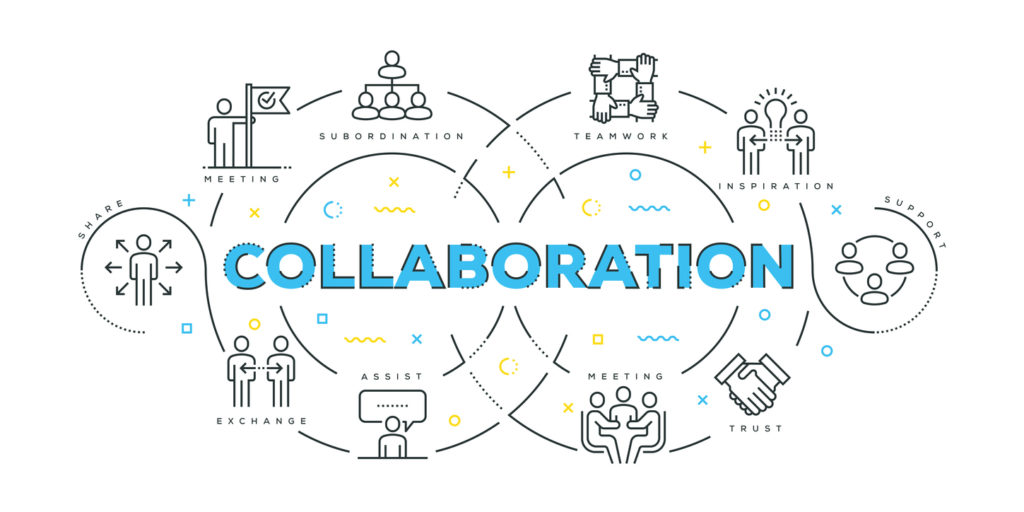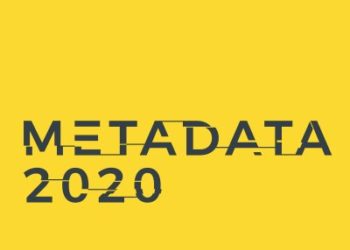When you’re offered the chance to speak about one of your favorite topics, in one of your favorite cities, it’s very hard to say no. So of course, when Anthony Watkinson invited me to participate in a panel on Collaboration to Improve Scholarship at the Fiesole Library Collection Retreat in Barcelona in April, I enthusiastically agreed. My fellow speakers were Bob Boissy (Springer Nature), Toby Green (OECD), Pierre Mounier (OpenEditions), and Roger Schonfeld (Ithaka S+R and fellow Scholarly Kitchen chef). Collectively, we covered a wide range of issues and initiatives around the topic, some of which I was already familiar with, some of which I learned about for the first time.

First to speak was Toby, who focused on collaborating to meet the needs of readers. He highlighted the fact that readers are often overlooked, including in our answers to the recent Ask the Chefs question: What Will You Be Writing About Five Years From Now? He pointed out that we have moved from reader-focused publishing in pre-digital times, with the library being the central source of scholarly information, to a brand-focused one, where readers have to navigate their way around countless individual platforms and services to find the content they want. Sci-Hub is successful, Toby believes: “Because it’s a comprehensive, reader-facing, service for researchers that’s easy to use.” He painted a picture of a world where content is “find-able” (in the way that homes for sale are find-able via companies like Trulia and RightMove); accessible (dependably available when you need it, a la Lyft or Uber); and understandable (for example, free of what he terms “jargon monoxide”). Collaborating to achieve these goals will increase usage of content, he argued, citing OECD’s usage statistics, which show that 85% of their usage comes from outside of their subscribing institutions.
Next up was Roger, on The Turn to Researcher Workflow – a topic that he has also written about recently here on the Kitchen. He believes that content is giving way to workflow, and addressed two big questions. First, should the research university outsource more core scholarly infrastructure and, if so, to whom, and under what terms? And second, with some of the largest publishers now established as workflow providers, what strategies are available for those left behind? He took a deep dive into the two heavyweights, Digital Science and Elsevier, but noted that Clarivate is moving to catch up, with their recent acquisitions of Publons and Kopernio. But while all these companies undoubtedly offer a great range of services that researchers want and need, what are the implications of allowing them to dominate in this way? Can, and should, the wider scholarly community put most – if not all – of its eggs in these commercial baskets?
Pierre tackled the topic of Scholarly Communication in the Context of Open Science: The Need for Infrastructures. Starting and ending with arresting images of the construction of the Eiffel Tower as his metaphor, he provided a brief history of the digital research infrastructure (fun fact: the first reference he found to it was in a 2003 NSF report: Revolutionizing Science and Engineering Through Cyberinfrastructure). He highlighted the need for an open infrastructure – one that supports the social sciences and humanities (SSH), as well as STEM subjects. OPERAS (Open Access in the European Research Area through Scholarly Communication) is a partnership of 35 organizations in 11 countries, who are committed to establishing a distributed infrastructure for open scholarly communication in SSH. They collectively serve the researcher’s needs at every stage of the research life cycle, providing a federation of publishing platforms to deliver Open Science services.
This was a great segue into my talk, which focused on collaboration to build the research infrastructure, using my own organization, ORCID, and the Metadata 2020 initiative as examples. ORCID has always relied on collaboration between stakeholders from right across the scholarly ecosystem. Representatives from commercial and not-for-profit organizations (associations, funders; publishers; research institutions; and service providers) came together to found and launch ORCID, and continue to be represented on our Board, which is required to comprise at least half not-for-profits. There’s a real power in the fact that, while they individually reflect the needs of their own community (organization, sector, geography), collectively, they make decisions that benefit the whole scholarly community. This has helped us clearly define what we are asking of each community and why, and to develop functionality, messaging, campaigns, and programs (such as our recently relaunched Collect & Connect program) to support their needs, so that together we can achieve our vision to improve how information is shared.
Metadata 2020 (full disclosure: I’m an advisor and member of one of the project groups below) describes itself as: “a collaboration that advocates richer, connected, and reusable, open metadata for all research outputs, which will advance scholarly pursuits for the benefit of society.” Although Crossref initially founded the effort, it’s very much a grassroots initiative that is being driven by the community. And we are making great progress! Since its launch last September, over 70 individuals have been involved in defining the challenges and opportunities for the five key stakeholder groups (data publishers and repositories; funders librarians; publishers; service providers/platforms and tools). Following their reports earlier this year, six cross-sector projects have been launched to convert those opportunities into actions:
- Researcher Communications
- Metadata Recommendations and Element Mappings
- Defining the Terms We Use About Metadata
- Incentives for Improving Metadata Quality
- Shared Best Practice and Principles
- Metadata Evaluation and Guidance
Over 100 individuals are now participating in Metadata 2020 participation; if you’re interested in getting involved in any of these projects, it’s not too late! Please contact Clare Dean.
Last, but very much not least, Bob introduced us to Cooperative Marketing: Marketing With You, Not at You. Unlike traditional marketing, cooperative marketing focuses users and their information needs, rather than buyers and their budgets. Engagement is post-publication and geared toward the library, discoverability, and using resources. He shared several examples of how and why Springer Nature uses cooperative marketing. For example, their affordable textbooks campaign was inspired by campaigns for open textbooks by SPARC and student public interest research groups. The goal is to increase awareness and drive usage of e-textbooks that a university has already licensed, including working with the library to ensure faculty are aware of these resources. Other examples included sponsoring library research and co-presenting with librarians at conferences; helping disseminate information via SharedIt (scholarly sharing for registered users, authors, and students); and a whole bunch of different types of events hosted for and/or with the library. My personal favorite was a cooperative campaign with a culinary school library, featuring an Edible Book Festival, where students were encouraged to create book-themed edible art: “an event you can sink your teeth into,” to quote the poster!
I’d like to end with my favorite quote from the session (from an anonymous Metatdata 2020 interviewee), which sums up – for me personally and, I think, for many of us in scholarly communications – why we’ve chosen to work in this community: “In the end it’s in everybody’s best interest to have improved outputs. We would, as a community, redeem ourselves if we were able to use all this infrastructure and data to delight our users and improve their lives.” Let’s keep collaborating to achieve those goals!



